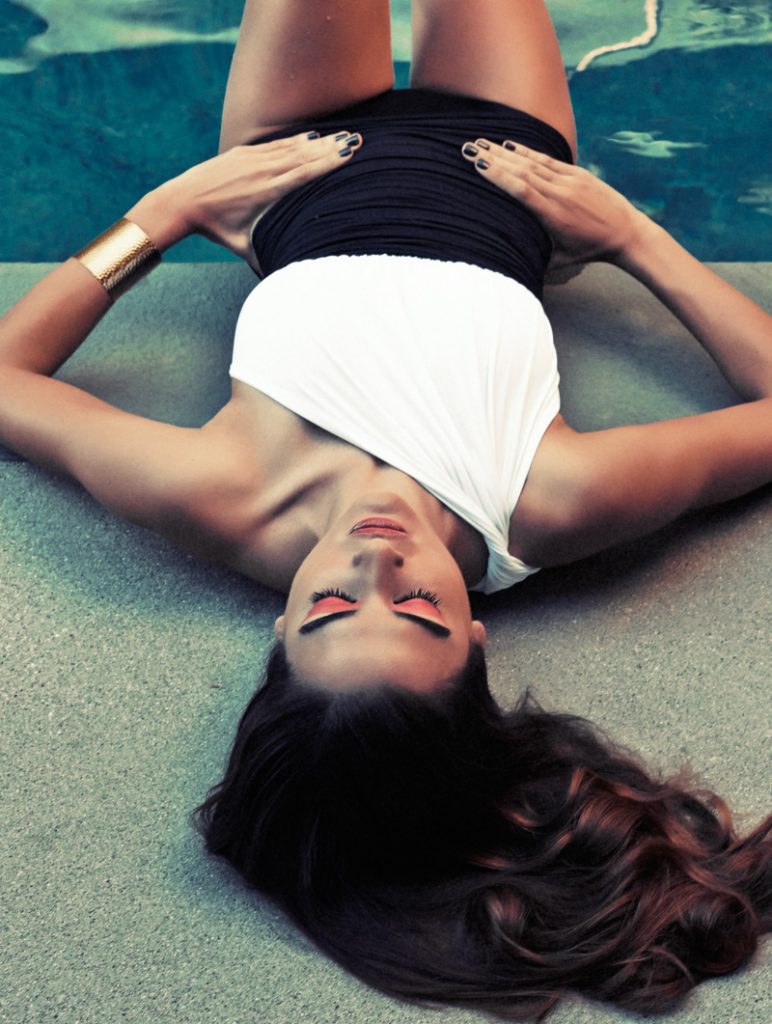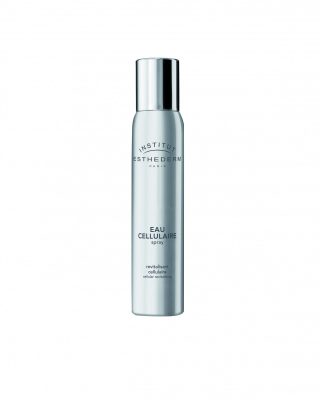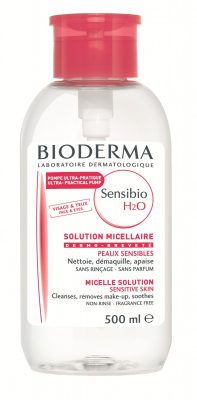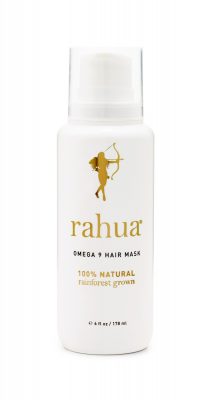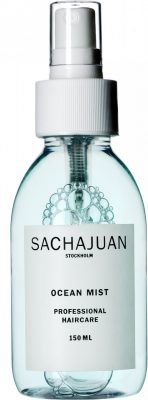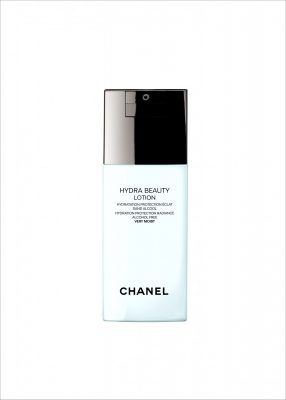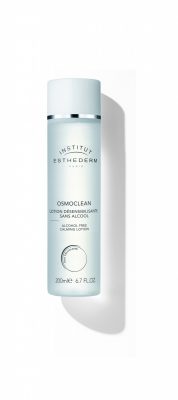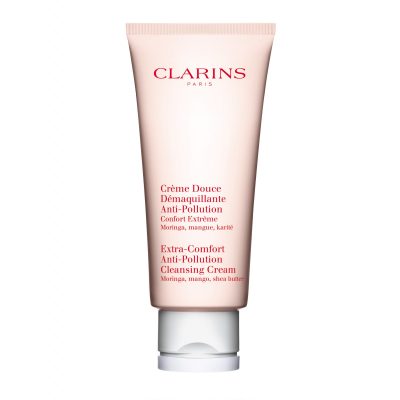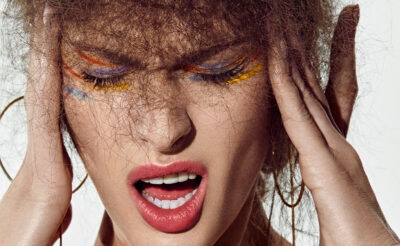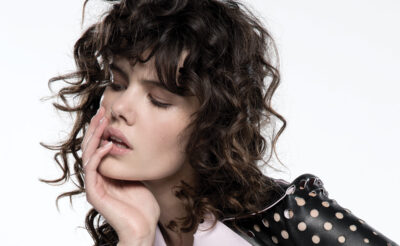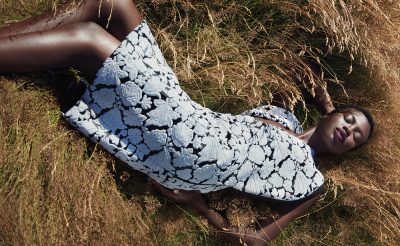From dehydrated skin to weakened hair, living in a dry desert can leave our bodies feeling parched from head to toe. As the summer heat of Dubai looms, we investigate the daily effects of a life with (or without) water.
As a child I’d lay immersed in bubble-laden water for hours. I’d eventually emerge in awe of my prune-like wrinkled hands. Why were my hands distinctly wrinkled when I’d been surrounded by water? But that’s the thing about water: it’s a puzzling powerhouse. The power of water has always been laid bare before us, but with its accessibility so readily available, we easily forget the weight it really holds for our bodies.
For a start, without water we’d be dead.
‘…Water is the main component of our body and the main component of our skin. There is a link between the level of water in your body and the use of your body. A newborn baby is composed of 90 percent of water and elderly people are 60 percent. The average content during our lifetime is 70 percent. If you take a cosmetic product it’s also 70 percent,’ says Isabelle Benoit, Director of Scientific Innovation for Institut Esthederm in Paris. Our bodies need to maintain its appropriate water level to function. How many times have you been told to drink 8 glasses of water per day? More times than you care to remember. Many doctors advise the drinking water throughout that day, keeping your intake steady as it’s more easily absorbed by your body this way – avoid drinking all 8 in one go. What we put inside our bodies shows on the outside, and vice versa. Drinking water regularly on a daily basis has an abundance of benefits. ‘Drinking enough water combats skin disorders like psoriasis, wrinkles and eczema. It also increases the metabolic rate and improves digestive system to flush out toxins from the body. This in turn gives you healthy and glowing skin,’ says Dr. Mona of Biolite Clinic in Dubai. Many celebrities such as Jennifer Anniston and Sienna Miller have attributed the benefits of (pure) coconut water to their glowing and youthful complexions. Being touted as better for you than normal water, it’s seen its popularity soar in recent years.
But living in the Middle East (where water is naturally scarce) access to drinking water isn’t easy. It has been claimed that Dubai is home to the most expensive drinking water in the world. The water in the region is put through a desalination process to allow it to be drinkable for its residents. Desalination removes dissolved salts from water. Within months of arriving on Dubai’s sandy shores, expats complain of troubling brittle hair and dry skin – pointing the finger at the region’s water. ‘This water is actually not good for your skin. It is alkaline at pH8 and it has a high salt content (the pH of your skin is 5.5). The best thing to do would be: after you’ve applied water to your face in the morning and evening, always finish your routine with a spray of cellular water. So the water left on your skin is actually good for it,’ advises Benoit. Eau Cellulaire Spray by Institut Esthederm is noted for replicating the water found on your skin. It’s balanced in its mineral salts and trace elements. Similarly, Bioderma’s Sensibio H2O (another French brand) contains micelles. They are attracted to dirt and oil (typically found on your skin at the end of the day) and they draw out the impurities without drying out your skin. In other words, they’re gentle cleansers and hydrators.
Desalinated water also contains low levels of chlorine, which in turn, can oxidize hair and damage the hair’s proteins and cuticles. ‘Chlorine can cause negative effects on both our hair and skin. It strips the natural protective oils from the skin and hair, causing excess drying and frizz. Dry hair can be coarse, static and prone to tangles and breakage,’ says Dr. Fazeela Abbasi, a cosmetic dermatologist at Dermacare in Dubai. Amazon Beauty’s Rahua Omega 9 Hair Mask is a great counteractive to bring brittle hair back to life. Learning from the women of the Quechua-Shuar tribes in the Amazon rainforest, they developed hair care products containing Rahua oil. With oil being one of the beauty buzzwords of the moment, Moroccanoil’s Original Treatment is great for putting a little bit of oomph back into your locks too. But chlorine can also play havoc with your skin: ‘It can cause blemishes and the development of wrinkles. In order to prevent chlorine from damaging your appearance, it would be a good idea to install a whole house carbon water filter to remove chlorine from your entire home. This home water filter will also effectively remove a wide range of chemical and organic contaminants to deliver spa-quality healthier water to every faucet in the home for softer skin and smoother hair,’ continues Dr. Fazeela Abbasi. We have thousands of hair follicles on our scalp, so losing hair naturally occurs day-to-day – on average we lose 20-50 strands of hair per day. ‘The rule is not to aggress it. If you aggress you begin to destabilise. Too high detergent or product with silicones will aggravate. Don’t wash your hair every day,’ says Benoit. Hair loss can be accountable for multiple reasons: Vitamin D and B12 deficiency, low ferritin levels, humidity, air conditioning and dehydration. ‘The air conditioning is not good for your skin. Throughout the day your skin loses its moisture to adapt to the environment outside. It also loses trace elements, so you need to replenish (on a regular basis) your skin with water’, says Benoit.
Moisturising your skin both internally and externally with water-based products is vital if you wish for healthy skin and hair once again. ‘You face a dilemma here because when you want to wash your face you use water, but the water here is not pure and healthy for your skin. You’re left with the problem of the water left sitting on your skin (after washing) being full of impurities. If you apply cosmetic products on top of that, the product will force the penetration of all these impurities into your skin’, explains Benoit. With many people opting to drink bottled water instead of tap water, maybe the same should be adopted for our cleansing routine? ‘Bottled water would be better than tap water. It doesn’t bare any impurities, it’s not high in sodium chloride – but it’s not skin water. The best water for skin cells is cellular water,’ concludes Benoit. Again, do as the French do and reach for micellar water – only use bottled water if it’s a last resort. Whether or not bottled water is in fact good for our skin is still a debatable issue. With some dermatologists citing it as being relatively okay and others opposing its use. With over 10 types of bottled water to pick from it’s vital to note where the water is sourced from, that the brand is regularly checked for contamination and the water is low in sodium and fluoride. But – the golden rule is to moisturise your skin as soon as it’s been in contact with water. ‘The star ingredient for this is hyaluronic acid, which is a fairly large sized molecule (called ‘large molecular weight’). The properties of these molecules allow for it to stretch naturally on the surface of the skin, and have the ability to trap 1,000 times its weight in water. The water is kept at skin surface, ensuring long-term moisturisation,’ says Benoit. Ingredients such as ceramides, urea and physiological lipids are essential for locking in moisture. Hyaluronic acid is known for plumping fine lines and wrinkles caused by dehydration, leaving you with a ‘baby face’ glow.
As the summer heat of Dubai looms, the air conditioning will increase, the sun’s rays will inevitably get stronger, the humidity will rise and our bodies will consequentially become dryer. Not forgetting that we’ll most certainly be flying between continents and climates. ‘Water is essential to maintain the optimum skin moisture and deliver essential nutrients to the skin cells. It replenishes the skin tissue and increases its elasticity. This helps delay the appearance of signs of ageing like wrinkles and fine lines,’ says Dr. Mona. Without enough water, skin begins to inadequately perform functions such as exfoliation, making collagen and self-repair. In time this will affect the appearance of your skin. The power of water shouldn’t be underestimated; it keeps us alive.
